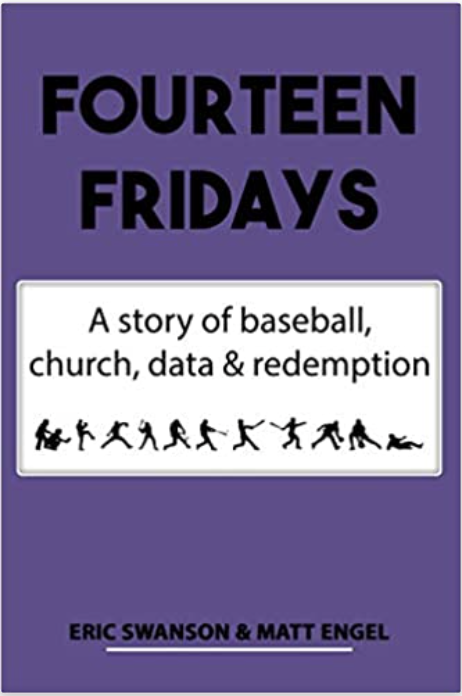What is a “Game-changer?”
A game-changer is an event, tactic, strategy, approach, etc. that forever changes how a game is played. Think of William Webb Ellis (probably out of primal frustration) who picked up the soccer ball and started to run. When the opposing side tackled him to the ground, the ball now squished to a more oblong shape under the weight of a pile-up, they found themselves thinking, “Hey, that was kind of fun.” That game-changing event evolved into rugby and eventually American football. In 1906, the forward pass was legalized…which was really the birth of gridiron as we know it. What are the game-changers today. Maybe we have to go to Little Rock HS to find the next game-changer…for High School Football at least. Read the following article called “Winning Unconditionally” by Sheldon Smith:
If you think Bill Belichick bucks convention with his play-calling, meet Kevin Kelley, head football coach of Pulaski Academy in Little Rock, Ark. Actually, perhaps you’ve met him already.
Kelley has become a cult figure among both football coaches and the sports analytics community for his disregard — contempt even — for traditional football wisdom. He’s been featured in Sports Illustrated. He figured prominently inScorecasting. He’s been a regular at coaching clinics and at the annual MIT Sloan Sports Analytics Conference.
For one, Kelley doesn’t believe in punting. His Bruins teams go for it on fourth down, even in the most extreme situations. His playbook is filled with tricks and gimmicks. He often forbids his players to return punts, reckoning that the odds of a fumble outstrip the incremental yards that can be gained from a return. After his team scores, it almost always attempts an onside kick. There are 12 varieties in the playbook — including one in which the ball is placed flat on the ground — and Kelley figures that the chance of recovery outweighs the risk of allowing the opposition to start a drive near midfield.
The funny thing about Kelley: He’s not a mad scientist or an iconoclast, zigging where everyone else is zagging, for the hell of it. Rather, he’s a relentlessly rational sort whose methods have backing in data.
The decision not to punt? According to Kelley’s statistics, when a team punts from near its end zone, the opponent will take possession inside the 40-yard line and will then score a touchdown 77 percent of the time. If it recovers on downs inside the 10, it will score a touchdown 92 percent of the time. "So [forsaking] a punt, you give your offense a chance to stay on the field," he said. "And if you miss, the odds of the other team scoring only increase 15 percent. It’s like someone said, ‘[Punting] is what you do on fourth down,’ and everyone did it without asking why."
Still, even for Pulaski fans who have come to expect the unexpected, Kelley outdid himself last Friday night. The Bruins visited the Cabot Panthers, one of the best teams in Arkansas and a school with roughly five times the student body of Pulaski. More than 8,000 fans packed the bleachers. One of the state’s network affiliates televised the game. Another held its evening news from the sidelines.
With Kelley calling plays, Pulaski scored on its first drive. Naturally, the Bruins then attempted an onside kick, which they recovered. Soon, they scored another touchdown. They repeated the drill — onside kick, recovery, touchdown — again. And then again. With 8:35 left in the 12-minute first quarter, Cabot trailed Pulaski 29-0 and had yet to run a play from scrimmage.
As Pulaski prepared to attempt its fourth onside kick, Cabot called timeout. ("Not too often you see timeout called as the receiving team lines up for a first-quarter kickoff," Kelley said.) Finally, Cabot recovered the kick and began its first offensive set of downs. Cue: more unconventional calls from Kelley. On defense, Pulaski put all 11 players in the box, leaving every receiver uncovered. The strategy worked, too, as the quarterback misfired under the pressure (and, surely, the unprecedented experience) of facing an 11-man rush.
After the 29-0 outburst, the game was remarkably close. Pulaski ended up winning by 30 points, 64-34, racking up 664 yards in total offense and getting eight touchdowns from quarterback Fredi Knighten (the Bruins also recovered a total of five onside kicks). Pulaski moved to No. 3 in the state AP poll and retained its No. 1 ranking in Arkansas Class 4A, a good bet to win a third state title in the last eight years. The Bruins also climbed from 99th to 75th in the Rivals Top 100 national rankings, not bad for a school with just 350 students. It makes for a strong endorsement of its coach’s methods.
"Honestly, the more football I see, the more I’m convinced we’re right," Kelley said. "That game the other night, they were just stunned. Emotionally, it takes so much out of you when the other team goes for it successfully or recovers an onside kick — or three of them in a row."
Now…I suspect that other HS coaches will give this game-changer a try. It’s like Moneyball for High School football. Who says you have to field a punt or kick on 4th down? So that brings us to a bigger question that we looked at at Leadership Network’s staff meeting this morning. Is there any behavior in life or ministry that statistically just doesn’t make sense. Is the spirituality of congregants tied to length or depth of the sermon…or is it tied to service…or a small group…or a missions trip? Are people more committed to the purposes of God if they attend weekly or only monthly? We can figure some of this out. We don’t have to continue to engage in unproductive behaviors even if every other faith community is doing them. We can be game-changers.









Great word. We (our Churches) are so stuck in a box that any change in the “Church Schedule” freaks people out……….then leadership fear upsetting people…
I say “upset them”, shuffle the deck. Give the Holy Spirit a chance to Rock the place….